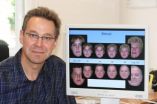(Press-News.org) Medical experts have issued a warning about the common practice of tablet splitting, after a study found that nearly a third of the split fragments deviated from recommended dosages by 15 per cent or more.
Their study, published in the January issue of the Journal of Advanced Nursing, points out that the practice could have serious clinical consequences for tablets that have a narrow margin between therapeutic and toxic doses.
And they are calling on manufacturers to produce greater dose options and liquid alternatives to make the practice unnecessary.
Researchers from the Faculty of Pharmaceutical Sciences at Ghent University, Belgium, asked five volunteers to split eight different-sized tablets using three techniques commonly used in nursing homes.
They found that 31 per cent of the tablet fragments deviated from their theoretical weight by more than 15 per cent and that 14 per cent deviated by more than 25 per cent. Even the most accurate method produced error margins of 21 per cent and eight per cent respectively.
"Tablet-splitting is widespread in all healthcare sectors and a primary care study in Germany found that just under a quarter of all drugs were split" says study lead Dr Charlotte Verrue.
"It is done for a number of reasons: to increase dose flexibility, to make tablets easier to swallow and to save money for both patients and healthcare providers. However, the split tablets are often unequal sizes and a substantial amount of the tablet can be lost during splitting."
The five researchers comprised a pharmacy student, researcher and professor, an administrative worker and a laboratory technician, ranging from 21 to 55 years of age. With the exception of the technician, none of the other study participants had tablet-splitting experience. The authors believe this replicated nursing home conditions where splitting is not always performed by professional nurses.
Between them they split tablets into 3,600 separate quarters or halves using a splitting device, scissors and a kitchen knife. The eight different tablets were different shapes and sizes, three were unscored, three had one score line and the others had two.
The drugs were prescribed for a range of health conditions, including Parkinson's, congestive heart failure, thrombosis and arthritis.
After splitting, each fragment was weighed to see how much they deviated from the theoretical weight.
Key results included:
Using a splitting device was the most accurate method. It still produced a 15 to 25 per cent error margin in 13 per cent of cases, but this was lower than the 22 per cent for scissors and the 17 per cent for the knife.
The splitting device produced a deviation of more than 25 per cent in eight per cent of cases, compared with 19 per cent for the scissors and 17 per cent for the knife.
Some drugs were much easier to split accurately than others. The easiest to split produced an overall error margin (15 per cent deviation or more) of two percent and the most difficult tablets produced an error margin of 19 per cent.
"Tablet splitting is daily practice in nursing homes" says Dr Verrue. "However, not all formulations are suitable for splitting and, even when they are, large dose deviations or weight losses can occur. This could have serious clinical consequences for drugs where there is a small difference between therapeutic and toxic doses.
"Based on our results, we recommend use of a splitting device when splitting cannot be avoided, for example when the prescribed dose is not commercially available or where there is no alternative formulation, such as a liquid.
"Staff who are responsible for splitting tablets should receive training to enable them to split as accurately as possible. They should also be made aware of the possible clinical consequences of dose deviations.
"We would also like to see manufacturers introduce a wider range of tablet doses or liquid formulations so that tablet splitting becomes increasingly unnecessary."
###
Notes to Editors
Tablet-splitting: a common yet not so innocent practice. Verrue et al. Journal of Advanced Nursing. 67.1, pp 26-32. (January 2011). DOI: 10.1111/j.1365-2648.2010.05477.x
The Journal of Advanced Nursing (JAN) is an international, peer-reviewed, scientific journal. JAN contributes to the advancement of evidence-based nursing, midwifery and healthcare by disseminating high quality research and scholarship of contemporary relevance and with potential to advance knowledge for practice, education, management or policy. www.journalofadvancednursing.com
Wiley-Blackwell is the international scientific, technical, medical, and scholarly publishing business of John Wiley & Sons, with strengths in every major academic and professional field and partnerships with many of the world's leading societies. Wiley-Blackwell publishes nearly 1,500 peer-reviewed journals and 1,500+ new books annually in print and online, as well as databases, major reference works and laboratory protocols. For more information, please visit www.wileyblackwell.com/ or our new online platform, Wiley Online Library (www.wileyonlinelibrary.com/), one of the world's most extensive multidisciplinary collections of online resources, covering life, health, social and physical sciences, and humanities.
END
Treating fractures in children requires special knowledge of growth physiology. Incorrect treatment of bone fractures in child and adolescent patients is less often caused by technical deficiencies than by a misjudgment of the special conditions in this age group. Using the example of treating fractures of the upper limb, Ralf Kraus from the Marburg-Gießen University Medical Center, and Lucas Wessel, University Medical Center Mannheim, report in the current issue of Deutsches Ärzteblatt International what should be borne in mind when diagnosing and treating fractures in ...
Brain scans of children with attention-deficit/hyperactivity disorder (ADHD) have shown for the first time why people affected by the condition sometimes have such difficulty in concentrating. The study, funded by the Wellcome Trust, may explain why parents often say that their child can maintain concentration when they are doing something that interests them, but struggles with boring tasks.
Using a 'Whac-a-Mole' style game, researchers from the Motivation, Inhibition and Development in ADHD Study (MIDAS) group at the University of Nottingham found evidence that children ...
Water is a precious commodity, so finding ways to re-use waste water, especially in arid regions is essential to sustainability. Researchers in India have now carried out a study of various waste water filtration systems for kitchen waste water and found that even the most poorly performing can produce water clean enough for horticultural or agricultural use. They report details in the International Journal of Environmental Technology and Management.
Recycling domestic wastewater is becoming an important part of water management and emerging technology and a shift in ...
Two ESA observatories have combined forces to show the Andromeda Galaxy in a new light. Herschel sees rings of star formation in this, the most detailed image of the Andromeda Galaxy ever taken at infrared wavelengths, and XMM-Newton shows dying stars shining X-rays into space.
During Christmas 2010, ESA's Herschel and XMM-Newton space observatories targeted the nearest large spiral galaxy M31. This is a galaxy similar to our own Milky Way – both contain several hundred billion stars. This is the most detailed far-infrared image of the Andromeda Galaxy ever taken and ...
A study by Canadian researchers examined the prevalence of maternal depression and its impact on children newly diagnosed with epilepsy. Prevalence of depression in mothers ranged from 30%-38% within the first 24 months following a child's epilepsy diagnosis. The mother's depressive symptoms negatively impacted the child's health-related quality of life, but the effects were moderated by the amount of family resources and mediated by how well the family functions and the extent of family demands. Details of this novel study appear online in Epilepsia, a journal published ...
How to look younger without plastic surgery? Psychologists of the Jena University (Germany) have a simple solution to this question: Those who want to look younger should surround themselves with older people. Because when viewing a 30-year-old we estimate his age to be much younger if we have previously been perceiving faces of older people.
"People are actually quite good at guessing the age of the person next to them," Dr. Holger Wiese says. The psychologist of the Jena University is responsible for one of six research projects in the DFG-sponsored research unit "Person ...
Scientists at Inserm and Institut Pasteur have performed biomarker discovery on patients being treated for chronic hepatitis C infection. Their work, published in The Journal of Clinical Investigation, demonstrates that the plasma levels of the protein IP-10 predict, prior to treatment initiation, the efficacy of treatment with pegylated-interferon and ribavirin. Based on these results, the scientists have developed a prognostic test. Commercialization is anticipated in 2011, and will help inform physicians of the chances that patients will respond to standard treatment ...
Severely injured patients transported by helicopter from the scene of an accident are more likely to survive than patients brought to trauma centers by ground ambulance, according to a new study published in The Journal of Trauma: Injury, Infection, and Critical Care. The study is the first to examine the role of helicopter transport on a national level and includes the largest number of helicopter-transport patients in a single analysis.
The finding that helicopter transport positively impacts patient survival comes amid an ongoing debate surrounding the role of helicopter ...
As every middle-school child knows, in the process of photosynthesis, plants take the sun's energy and convert it to electrical energy. Now a Tel Aviv University team has demonstrated how a member of the animal kingdom, the Oriental hornet, takes the sun's energy and converts it into electric power -- in the brown and yellow parts of its body -- as well.
"The interesting thing here is that a living biological creature does a thing like that," says physicist Prof. David Bergman of Tel Aviv University's School of Physics and Astronomy, who was part of the team that made ...
Boston, MA – A new study of men with prostate cancer finds that physical activity is associated with a lower risk of overall mortality and of death due to prostate cancer. The Harvard School of Public Health and University of California, San Francisco researchers also found that men who did more vigorous activity had the lowest risk of dying from the disease. It is the first study in men with prostate cancer to evaluate physical activity after diagnosis in relation to prostate cancer-specific mortality and overall mortality.
The study appears in an advance online edition ...

